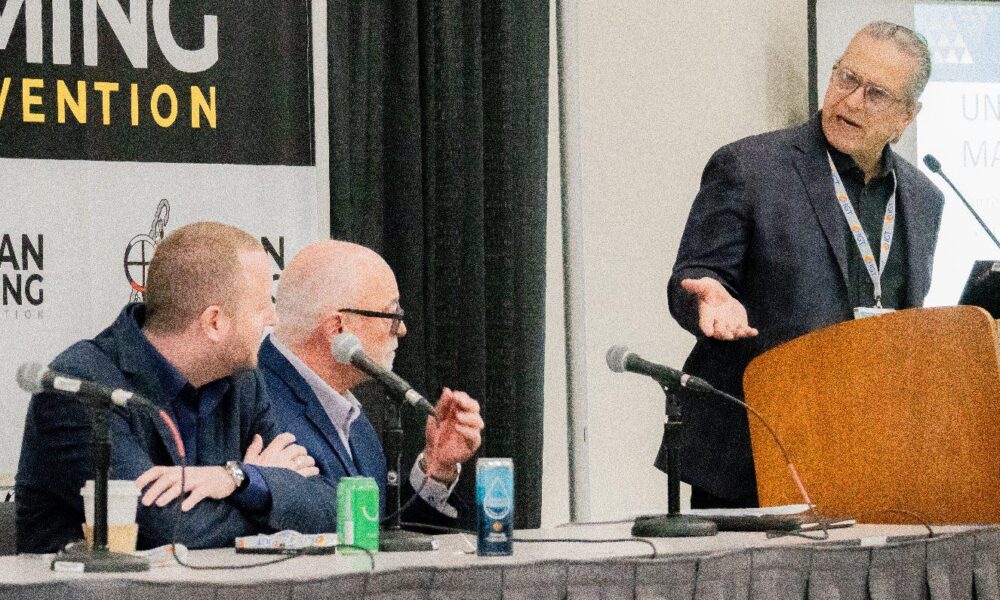One of the themes of the Indian Gaming Association Tradeshow and Conference in San Diego is how tribal gaming faces numerous challenges from unregulated operators. It’s why Victor Rocha, the conference chair for the event, wanted to host a panel on the topic.
What Rocha heard Tuesday during the session “Emerging Trends in Interactive Wagering: Opportunities or Threats?” was probably more than he expected.
Offshore casinos, sweepstakes, prediction markets, and other unregulated sites are part of “the largest attack on tribal sovereignty in modern history,” said Howard Glaser, Light & Wonder’s Head of Government Affairs. “And the tribes have surrendered without a fight.”
Steven Bodmer, Pechanga Band of Indians General Counsel, seconded everything that Glaser cited as correct. “We’re thinking very analog. When we talk about gaming, we’re not even talking about technology. But as you said, this disruptor now happens to occupy the space that we occupy. The reality is these are just competitors, right? So we’re still thinking very analog.”
Bodmer added, “Are they threats or opportunities? These things are already in our pockets, not only physically taking money, but circumventing laws and regulations set up for this great purpose. This was a threat years ago that we’re just now just talking about. You’ve got to make this an opportunity, because the threats are huge and that’s part of the strategy.”
Because this is a new form of gambling, according to the panelist, a new method of combatting unregulated sites is required. According to Tres York, the American Gaming Association’s vice president, government relations, little attention was paid to the slot machine at a corner store or gas station. Laws were in place to combat the proliferation of such things.
But prediction markets are a new phenomenon in the unregulated space.
“This started out with Kalshi offering election betting,” York said. “In their litigation, Kalshi essentially made the argument that election gambling isn’t the same thing as gambling on sporting events in the future, because it’s an election. It’s not an game, per se. And they basically said, the Super Bowl, that’s a game. March Madness, that’s a game. The PGA, that’s a game.
“Three months later, they decided they were going to self-certify sports future contracts, so it’s a very contradictory message.”
“Howard and Steve are right,” York added. “All of this is already here. All of us are kind of behind the ball, in some sense.”
Glaser said it’s incumbent on the tribes to join in the fight against unregulated gambling. Regulators have already determined that those who violate laws pertaining to gambling may lose their license to do business in jurisdictions. “That’s really where the power is in all of this, in laws and regulations.
“And the only thing missing in all this is the tribes. Arguably, the tribes have the most at stake. Because the gaming empire we’ve built with billions of dollars, with jobs and community programs at stake, we have much more at risk when somebody else comes in and just starts running the same operation that we’re running at no cost.”


